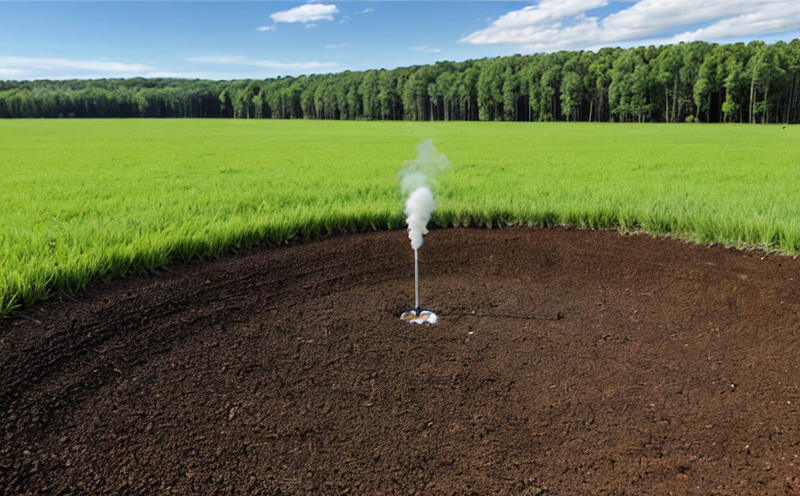Comprehensive Environmental Impact of Mining Operations Testing
The Comprehensive Environmental Impact of Mining Operations Testing is a critical component in ensuring that mining activities are conducted responsibly and sustainably. This testing service focuses on evaluating the environmental footprint of mining operations, providing insights into how these processes affect air quality, water resources, soil health, and biodiversity. The goal is to identify potential risks early and implement mitigation strategies to protect ecosystems.
The testing encompasses a wide array of parameters that are crucial for understanding the impact of mining activities on the environment. These include, but are not limited to:
- Atmospheric emissions: Measuring gases such as CO2, NOx, SOx, and particulate matter (PM) to assess air quality.
- Water quality: Analyzing various contaminants in surface water bodies affected by mining activities.
- Sedimentation studies: Evaluating the deposition of sediments into nearby rivers or lakes.
- Biodiversity assessment: Monitoring changes in local flora and fauna due to mining operations.
The testing process involves meticulous sample collection, preparation, and analysis using advanced laboratory instrumentation. Specimens are carefully prepared according to international standards such as ISO 14031 for environmental management systems. The data collected is then analyzed rigorously to determine compliance with regulatory requirements set forth by relevant bodies like the Environmental Protection Agency (EPA).
Our comprehensive approach ensures that all aspects of environmental impact are covered, providing stakeholders with a holistic view of mining activities' effects on the environment. This information can be used to inform decision-making processes related to sustainability initiatives within the industry.
The importance of this testing cannot be overstated given the growing awareness about climate change and its impacts on natural resources. By conducting thorough environmental impact assessments, we help mining companies adhere to best practices in environmental stewardship, thereby contributing positively towards sustainable development goals.
Why It Matters
The significance of comprehensive environmental impact testing lies in its role as an essential tool for responsible mining practices. Properly conducted tests enable industries to identify potential hazards early on and take proactive measures to mitigate them effectively. For example, if high levels of heavy metals are detected in nearby water sources due to runoff from mining sites, corrective actions can be taken immediately.
This service also plays a vital role in ensuring compliance with stringent environmental regulations imposed by governmental agencies worldwide. Non-compliance could result in substantial fines and reputational damage for companies involved in mining operations.
Moreover, this testing helps build trust between mining enterprises and local communities by demonstrating their commitment to preserving natural habitats around operational areas. Such transparency fosters goodwill among stakeholders who may otherwise view mining activities negatively.
Industry Applications
- Exploration Stage: Identification of potential environmental risks at the earliest stages can prevent costly mistakes later down the line.
- Operations Phase: Continuous monitoring ensures ongoing compliance with local laws and international standards.
- Reclamation Planning: Understanding current conditions allows for better planning of reclamation projects aimed at restoring affected areas after mining activities cease.
The testing is equally important during the closure phase where it helps assess whether all necessary measures have been taken to restore the site's original state.
Customer Impact and Satisfaction
- Regulatory Compliance: Ensures that mining operations meet stringent regulatory requirements, avoiding penalties and enhancing company reputation.
- Sustainability Reporting: Provides robust data for producing accurate sustainability reports which are increasingly becoming mandatory under various frameworks like GRI (Global Reporting Initiative).
- Stakeholder Relations: Positive environmental performance strengthens relationships with local communities and other stakeholders, leading to better public perception.
Customers appreciate our commitment to delivering high-quality results that contribute significantly towards achieving their sustainability goals. We pride ourselves on offering personalized solutions tailored specifically to meet each client’s unique needs.





